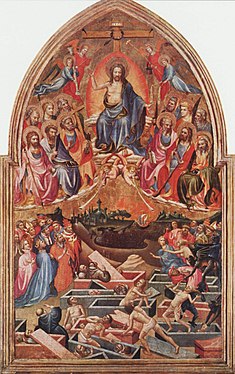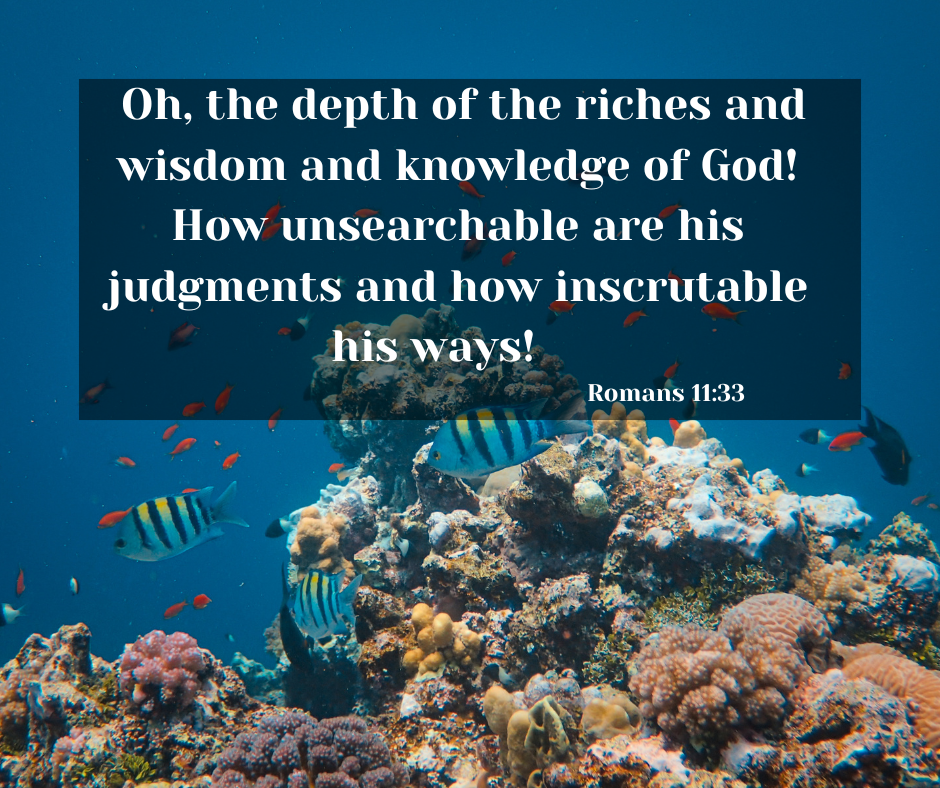St. Paul’s Dangerous Idea (Part 3)
Co-missioners,
For the past two weeks Steve Kuhl has been exploring how St. Paul thinks about God, and how this contrasts with presumptions common to much of American Christianity. Today we send along the final section of Steve’s essay. A reminder that we extracted the essay from a longer paper Steve presented in 1997 at a workshop on the encounter between science and theology. We hope to have the original paper available in our online library in the near future. May the extraction serve in the meantime to underscore why we at Crossings tout Christ crucified.
Peace and Joy,
The Crossings Community
___________________________________________________
St. Paul’s Dangerous Idea
(continued from Part 2)
by Stephen C. Kuhl
Gnosticism and Creation
Gnosticism is a pseudo-Pauline version of the Christian faith that first emerged as Christianity encountered Greek thought and Hellenistic culture. Gnosticism set forth to resolve the tension between God’s wrath and mercy that is characteristic of Paul’s theology by positing an absolute dualism in the nature of things: two Gods (one wrathful and evil, one merciful and good) and two corresponding worlds (one material and evil, one spiritual and good).
Gnosticism is a creation-denying spirituality in that it identifies essential humanity, not with the created world, but the with divine itself. [8] In this view, humanity is essentially spiritual but caught in the material. Gnosticism was roundly rejected in the second and third centuries by what became known as orthodox and catholic Christianity. Nevertheless, Gnosticism keeps emerging perennially, in many and various forms, among Christian as well as other religious movements.
In the creation account of Genesis 2, humanity, adam, is essentially linked with adamah, the earth as are all other living beings. Biblically speaking, then, all creatures, including humankind, trace their “common descent” from the earth (Genesis 2:7; 19).
Nowhere in all of Scripture are the nature and implications of this representative role of humankind within the creation more thoroughly worked out than by Paul himself in Romans 8—only now, not from the perspective of “origins” (first things) but from the perspective of eschatology (last things). For Paul, there is not a hint of Greek/Gnostic dualism in his understanding of anthropology or cosmology. Paul does not posit a split between body and soul, or between humanity and the rest of nature. As humankind fares so fares the whole creation, and vice versa.

Holy lamb – Parish church in Althofen
From Wikimedia Commons
As Paul views the “present time,” the “whole creation” suffers under “a curse” due to bad representation on the part of humankind: humanity’s arrogant disobedience before God (Genesis 3:17; Romans 8:20). As a result, says Paul, all things are “subject to futility”or meaninglessness (Romans 8:20).
As Paul presents things, creation itself seems to know of its inherent need for humanity, that as humanity fares so fares the whole creation. Even more, Paul gives the distinct impression that the creation itself is not without “hope” (Romans 8:20). This hope is founded neither on the belief that the creation will survive regardless of what happens to humankind, nor on the idea that creation has no need of a representative before God, but on the fact that a new humanity is coming on the scene.
Paul calls that new humanity the “children of God” (Romans 8:21), a new humanity “in Christ” that is presently being reconstituted (“glorified”) from the old, discredited humanity through its participation in the suffering of Christ. These children of God have “received a spirit of adoption” (Romans 8:15), says Paul, and thus have become “heirs of God and joint heirs with Christ”(Romans 8:17) making them worthy, capable and meaningful representatives of the creation before God.
Fallen Creation
Paul’s understanding of God as Creator is very different from that of traditional theism. The dominant metaphor for understanding God in traditional theism is a “pre-fall” image, that of “God as the Great Architect,” the “proof’ of which is the pervasiveness of design throughout the world .
For Paul, on the other hand, the dominant metaphor for God is a “post-fall” image, that of God as judge, the proof or evidence of which is the pervasiveness of judgment throughout the world (Romans 2:1-11). This is not to say that for Paul the creation does not exhibit “design,” and that this design does not elicit wonder and awe, thereby hinting at the existence of a Designer. Indeed, it does! But even so, from Paul’s perspective, this evidence of design is not sufficient to establish what we would call “a meaningful life” or what Paul calls “faith,” that is the ability to glory in our existence before God.
For in Paul’s view creation is a “fallen” creation, distorted by sin, under the sentence of death, and “subject to futility” and meaninglessness (Romans 8:20). Indeed, as the Psalms also make clear, the presence of design may well invoke just the opposite of awe: a sense of the meaninglessness and insignificance of human existence (Psalm 8:4; Psalm 90; Psalm 144:3-4).
Therefore, for Paul, contrary to traditional theism, creation is not the ground or presupposition of Meaning, but of Meaninglessness. This is so because creation, as we know it, is characterized by the deadly clash of human sin and the wrath of God. For Paul, Meaning in any deep sense is not grounded in creation, origins, or “first things,” but in Christ, eschatology, “last things.” Meaning is a matter of the new creation, of God changing his approach to sinful humanity and recreating them “in Christ.”
For this reason, Paul rarely speaks of a “benign Creator,” not because God as judge is not good and right in Godself (Romans 7:7-13), but because God as judge cannot possibly elicit joy in sinners.
Moreover, in traditional Hebraic fashion, Paul never ever presumes that people can, with their own naked resources, behold this God in nature. This is so not for want of evidence of this God’s existence or because of some great epistemological barrier between the finite and the infinite, but because sinful human beings cannot possibly face up to a God who judges them so thoroughly and so fairly. [9] Rather, it is human nature, says Paul, to “exchange the truth about God for a lie” (Romans 1:25), whether that be the lie of traditional theism which obscures the truth of God’s judgment, or the lie of atheism which obscures the truth of God’s existence.
On the surface these two interpretations of reality—the traditionally theistic and the atheistic—appear to be opposites. But from Paul’s perspective they are like two fighting foxes joined at the tail: two clever ways of avoiding the “truth about God” as judge. Therefore, for Paul, “inscrutable” and “unsearchable” are more apt terms for describing God (Romans 11:33), even—especially!—for those like himself who have received mercy in Christ by grace for no apparent reason at all.
Paul and Teleology
I come finally to the third matter at issue in Paul’s dangerous idea about God. It has to do with the question of teleology, or purpose in the world.
The central question is this: is the world a goal-directed system? Is it directed, that is, toward a “telos,” an end in an absolute sense? One of the central assertions of traditional theism is that the world is indeed directed toward an absolute goal, one that is bigger than sum of the myriad of goal processes that comprise the world. While the exact shape of this “telos”is debatable, the fact that the world is goal-directed is not.
Again, the real issue is “Meaning” in the deep sense of the term, whereby people are able to glory in their existence before God, and to do so in an absolute sense. As we have said, human existence is not simply a matter of survival but of having a justifiable existence—an existence worthy of being. In traditional theism, this understanding of teleology has been grounded in a strong notion of divine providence and the sovereignty of God. God’s sovereignty insures meaning, stability, and salvation. Divine providence assures us of Meaning all along life’s journey.
However, for Paul, the overarching purpose of God’s work in the “natural world”—the world as represented by sinful humanity—can be summed up in one word: “repentance,” an honest acknowledgment of sin (Romans 2:4). But that’s precisely the problem! For such a goal undercuts humanity’s basic need for meaning in life, the need to believe that one’s existence is, in the last analysis, justifiable and worthwhile, and therefore meaningful. While it is true that “the knowledge of sin” (Romans 3:20) abounds in the world—to wit, the endless stream of people “passing judgment on one another” (Romans 2: 1)—true repentance does not. By calling sinners to capitulate in their own demise, true repentance—the kind of repentance whereby people acknowledge that they are sinners to the core (Romans 3:10)—contradicts the most basic human instinct to survive.
To be sure, most people’s lives are filled with many moments that are relatively meaningful, purposive, and secure (cf. Romans 2:1-11). Every defendant has his or her bright (glorious) moments on the witness stand of life. Indeed, such bright spots undergird the natural human inclination to cling to the presumption of innocence, the primal belief that in the last analysis their life will be deemed ultimately meaningful (justifiable) in the wider scope of things.

The Last Judgment – Gherardo Starnina
From Wikimedia Commons
But, as Paul argues, such a presumption of meaning is an illusion. For in the last analysis, all our bright moments will serve as little more than failed courtroom antics launched in order to “suppress the truth” about sin and wrath, but ultimately of no avail (Romans 1:18; see also John 16:8-11).
Of course, for Paul, this dangerous idea about God and God’s wrath is not intended to be the last word on the “telos” of God. Paul’s idea is not simply morbid existentialism. Nor is Paul interested in revealing this truth simply because it is true. Some things are better left unsaid. Rather, Paul’s ultimate purpose is to proclaim the fact that, in the death and resurrection of Jesus Christ, God has introduced a new, contravening “telos” into the world of sinners. “Jesus Christ is the end of the law [the old “telos”] so that there might be righteousness [a meaningful existence] for those who believe” (Romans 10:4).
Again, for Paul, the world has become a very complicated place since Christ. There are now two very different kinds of “endings” at work in the world, the anthropological line of demarcation of which is faith. Faith so unites the believer with Christ that Christ’s ending (his death and resurrection) becomes the believers ending—not only metaphorically, but historically. Believers expect not only to die, but also to rise outwardly, bodily, in the future, even as Christ himself already died and rose bodily (the theme of 1 Corinthians 15).
Even more, believers expect—and willing collaborate in—an inward kind of dying to sin and rising. This they do each and every day through the practice repentance and forgiveness. In repentance Christians indeed make use of God’s wrath and the knowledge of sin that it brings, not despairingly but hopefully, because of the forgiveness of sins that is theirs in Christ through faith. For Paul repentance and faith are the primary way the new life contravenes the old already. This is how Meaning replaces meaninglessness in history. This is how the new telos co-opts and subverts the old telos day by day (Romans 6).
“The Mystery of Life”
What still remains to be said is how the idea of these two possible endings of life (one meaningful, one meaningless) informs Paul’s view of the “mystery of life.” The “mystery of life” is not sufficiently probed by the question about the origin of life, “How did life begin?” Nor is it sufficiently probed by the question of traditional teleology, “To what end is life going?” Rather, since Christ, the most crucial question concerning the mystery of life is “Which ending?” More to the point, it has to do with the question “Why are some ending up ‘in Christ’ and some not?” “Why do some believe and others disbelieve?” “Why is God merciful to some and not to others?”
This question, for Paul, does not grow out of idle, philosophical speculation but from his disturbing missiological experience with his own Jewish people (Romans 9-11). They seemingly had all the advantages in the world (Romans 9:4), and yet they could not tally that advantage into faith and repentance.
Why so? Unlike either the Semipelagians (who find the reason in the particular character and potential of each human being) or the Calvinist Predestinarians (who find the reason in God’s hidden, eternal, and unchanging will towards each human being), Paul has no answer. For Paul the question of how and why some people acquire Meaning in the deep sense of the term and others do not remains the great “mystery of faith,” to use the phrase of the Eucharistic Prayer. However, what Paul does know for certain, as one who has been called to be an apostle, is that his task is not to explain the mysteries of life but to be a steward of those mysteries. His task is simply to proclaim Christ and let God do the rest (Romans 10:6-17). For in this way “God’s purposes of election continue, not by works but by his call” (Romans 9:11-12).
__________
Endnotes
[8] On the prevailing Gnostic character of religion in America, see Harold Bloom’s illuminating work, The American Religion. According to Bloom the character of religion in America, from the Southern Baptist Convention to the Mormons, is essentially Gnostic, regardless of the various names the different groups use to describe themselves.
[9] This idea is reflected throughout the Scriptures in the idea that no human being can look upon the glorious face of God of Creation and live. The locus classicus is Exodus 33:20, but the idea is already plainly at work in Gen 3:10, when primordial humanity could not bear to be confronted by God because of their sin.
Thursday Theology: that the benefits of Christ be put to use
A publication of the Crossings Community






